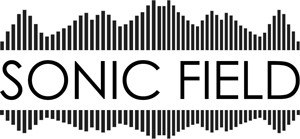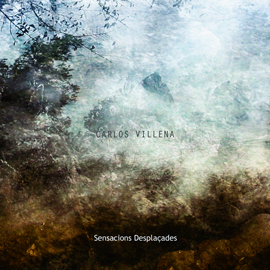
Sensacions Desplaçades. CARLOS VILLENA
(Mystery Sea 2011)
Carlos Villena’s Sensacions Desplaçades is characterised by a restricted use of resources, field recordings raw and processed, a clever and effective shifting relationship between background and foreground, and an element of mystery in the perception of transitions between clearly marked passages.
The sound sources are pleasing and engaging enough: an almost ‘classical’ introduction (within the idiom) of birds, traffic, indeterminate human activity, a rustling in the wings of what might be foliage. Then the processed sounds, less recognisable: longer drawn out midrange textures, growling sounds, extremes of register, resonant timbres with a hint of pitch, machine sounds, uncertain biophonies, even some very acousmatic whooshy envelopes. At times the music settles into waves or pulses of varying period, a feature of an earlier Mystery Sea release by Philip Sulidae.
It would seem as if the same sounds recur, modified slightly in various ways at each recurrence, combined and recombined differently each time. I’m reminded of a particular Harry Partch album with many short tracks, each presenting a different study combining his hand made instruments. The density of the polyphony varies from elegant two voice passages to complex contrapuntal sections, nodes of tension facilitating the pace and flow of the overall work, and, more importantly, working to avoid monotony, a danger in all lengthy sound works relying on restricted resources. Here’s the nub of this kind of work – how do you create and sustain interest with field recordings? Are they inherently interesting and captivating or, if they do need artistic working to engage the listener, how can this be carried out successfully? Overall in Villena’s choice of unremarkable sounds there is something of Arte Povera’s use of commonplace materials.
There are no sudden movements or revelations. An air of dogged patience pervades the work as we reach false summit after false summit. Again the threat of monotony is felt as we wait expectantly for something to unfold. There is no development or discernable direction, musical or narrative, which isn’t a problem in itself in new sound and music works, as long as some sort of interest and engagement with the listener is maintained. The balancing factors are, to an extent: the hints of a cyclical treatment of form, the pulses of sound, and pulses within pulses, which have just enough presence to push the work along; the binary contrasts between recognisable and obscure sounds and between simple and complex passages. It is a very fine balance. There are moments where the passages of contrast and added interest get in the way, for example filmic intrusions which certainly change the focus of the work, but which break the flow and the mood perhaps too suddenly.
There is one short section of the work which I could have listened to for hours, a passage in which the ‘pure’ gentle ambience of field recordings simply carry the listener along – wind in trees, a rustle of something in a bush, possible human activity. Perhaps a personal predilection and almost certainly stemming from a childhood memory, but I’ve listened to some artists recently who are exploiting this pure ambience, which goes far beyond any category of ‘ambient’, very well.
A final clever touch that should be mentioned is the pseudo arch form where the piece returns, more or less, to the same sounds at the end as were used at beginning.
In conclusion the album is a fine contribution to the idiom, another important step forward in Mystery Sea’s developing profile as a quality specialist label.
– Caity Kerr
Carlos Villena’s label Mantricum website
Mystery Sea website
*Carlos Villena is a multi-disciplinary artist based in Barcelona. He also runs the Mantricum record label.

